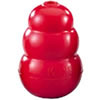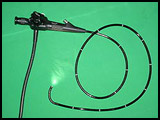
‘Nature versus Nurture’; almost everyone has heard of this debate. But what does this phrase actually mean? Why should we take into consideration both nature and nurture when choosing a pet? How can we make the most of both categories to raise the pet that is best for us? This article will introduce you to the ‘Nature versus Nurture’ debate, and will help you make your own conclusions about how each can affect your pet. It will then further discuss what characteristics you can expect to see developing in your puppy or kitten, and how both nature and nurture are involved.
The ‘nature versus nurture’ debate has been argued over since the first philosophers started questioning mankind’s basic assumptions. The argument is over whether nature or nurture is more important in deciding what kind of individual a pet (or person) will become. ‘Nature’ simply refers to the qualities that you are born with which are genetically and biologically based. Those who support nature as having a bigger part in determining our adult lives insist that our individual genetic codes dictate an array of factors, from personality to lifestyle choices. We’ve all heard the true stories of identical twins that were separated at birth. When looked at side by side, these twins often have uncanny similarities in anything from clothing preference to choosing a partner and yet they were raised apart. On a more common level, certain medical traits, and therefore some lifestyle choices, are known to be inherited. Even personalities can be surprisingly similar between relatives. It appears that our genes have far-reaching effects, even on complex personality traits. These days, even if it is not accepted that genetics determine who we are, it is generally known that genes can predispose us to leading certain lives.
What about ‘nurture’? Those who support nurture believe that the environment in which the individual is raised is more responsible than ‘nature’ in determining who they will become. Nurture includes the physical environment, social interactions, and all other influences outside of the body. This influence on how we live our lives is entirely believable. People believe in parenting, counselling, and health choices. This means that people also believe that nurture is a big part of determining our lifestyles and personalities.
The real answer to this debate is that nature and nurture are in balance with one another. For example, long legs (nature) can give you an advantage as a runner, but you will not perform well if you do not train (nurture). What does this have to do with our pets? It is important to understand that in some way, you are in control over how your pet develops (nurture), but some qualities they are just naturally born with (nature).
Nature: Some species (or breeds) just have certain behaviours that are hardwired. Dogs bark, form hierarchies in packs, and need some sort of human or canine companionship. Cats scratch, hunt, and often don’t like other cats. These are all facts of life, natural qualities, that we will have to accept. We can make sure that these behaviours are appropriate to the situation, but we cannot extinguish them easily. Also, just like humans, some personality traits are hereditary. This is why it is always helpful to know how docile and friendly the kitten/puppy’s parents are. A certain amount of personality is determined by genetics, by nature.
Nurture: A very important part of nurture is out of your control. Much of the socialization period of a pet is within the first 8 weeks of its life- when it is still with its mother. But the socialization period of your pet with humans extends well beyond that. You are responsible for exposing your pet to different kinds of people, places and things (cars, bikes, kids, people with hats, glasses, busy streets, the vacuum, riding in cars etc.) in the environment. Exposing your pet to these different stimuli can change its personality. Although it’s likely you’ll have trouble making a shy pet brave, you can make it more confident. This is only one example about how you can modify behaviour. Nurture is all about taking a personality trait or behaviour that already exists (nature) and modifying it (nurture).
The ‘nature versus nurture’ debate is complex and convoluted. It is far-reaching and applies to humans and pets alike. If you can understand the difference between nature and nurture, it might help you better understand your pet. By recognizing ‘natural’ behaviours, you can understand what to expect and tolerate in your pet. When you see the chance to ‘nurture’, you will realize what kind of positive influence you can have on the future of your pet. By working with your pet’s natural behaviours, you can help raise a well-balanced, well-behaved adult pet.
By Ashley O’Driscoll – Pets.ca writer
 Eight Great (and durable) Dog Toys
Eight Great (and durable) Dog Toys
There are thousands of
Eight Great (and durable) Dog Toys
Eight Great (and durable) Dog Toys
There are thousands of
 Dogs Cats and Endoscopy
Dogs Cats and Endoscopy
Dogs Cats and Endoscopy
Dogs Cats and Endoscopy
 Basic Obedience Training for Dogs: What You Ought to Know
Credit: Fran Hogan
From: publicdomai
Basic Obedience Training for Dogs: What You Ought to Know
Credit: Fran Hogan
From: publicdomai
 Raw Food Diet for Dogs
Raw Food Diet for Dogs: the
Raw Food Diet for Dogs
Raw Food Diet for Dogs: the
 Is it a Dog or a Bear?
For large dog breed lovers t
Is it a Dog or a Bear?
For large dog breed lovers t
Copyright © 2005-2016 Pet Information All Rights Reserved
Contact us: www162date@outlook.com